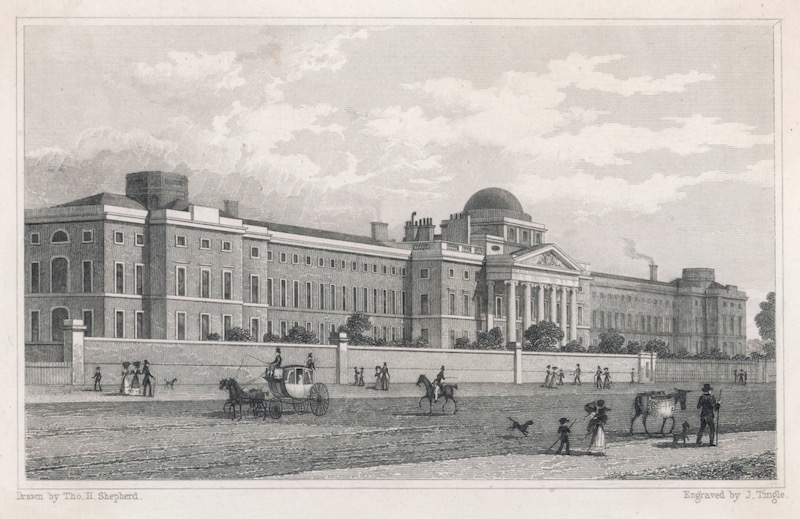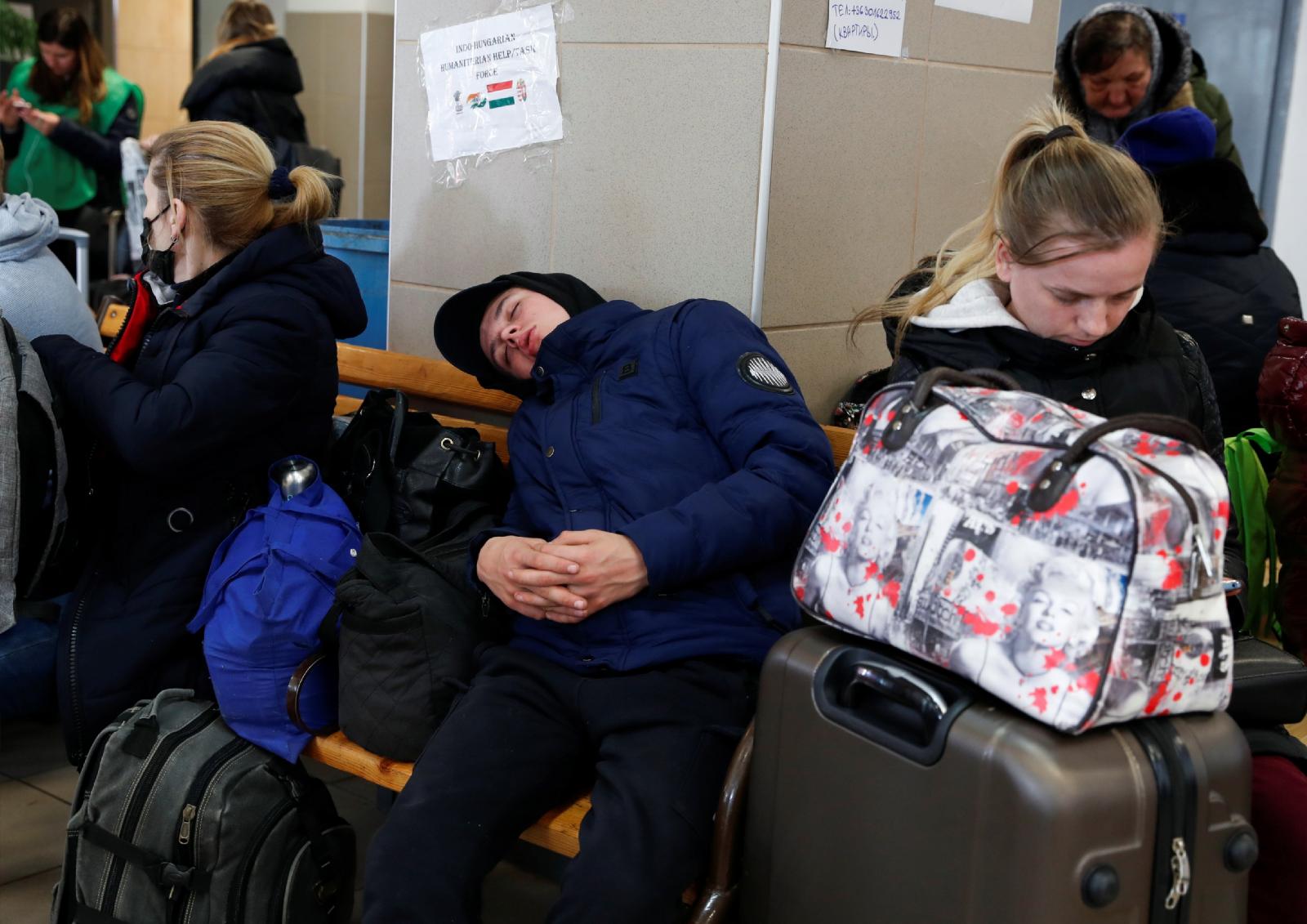On my last night in Poland I say farewell to the temporary humanitarian centre in a Tesco supermarket in Przemsyl on the Poland-Ukraine border. This is where I had spent a week working with the church and community charity, Love Bristol. I took a final walk around the centre: two gipsy boys skidded round kneeling on toy cars. Three boys played football, their trainers squeaking on the tiled floor. There is the constant ebb and flow of chat. Many faces pass me in a blur, some out of hundreds that I have seen over the last few days.
I recognise Olga’s daughter, Olga who I took to the Biometrics office in Rzseszow. This is the place they check the Ukrainians’ documents and take fingerprints to use in a visa to the UK if they should get one.
Olga is round and jolly looking with laughter lines around her eyes and lines on her face. She is in her late seventies. With a thick blue puffa jacket on, it takes us some time to put on her seat belt with much laughter from her, myself and the mother of the family who are also in the car. I’m struck by the sense of humour that many of the Ukrainians have despite what they’ve experienced in the last weeks and months.
There are two children in the car with their mother: Nikolai, who is nine, is the youngest and has an impish face with a little button nose and a lovely positive energy. He was always looking about him and saying: “Yes, yes. let’s go!”
It’s an hour’s journey from Przemsyl to Rzeszow. They spend several hours at the biometrics office. A few hours’ waiting and an extra wait because I had to fill in another lengthy application with a family in a hostel in Rzeszow.
At a service station on the way back I pull in and buy them dinner. Outside there is a woman with a west highland terrier puppy. Both the kids descend on him giving him a joint hug pressing him close to their faces and stroking him while he doggy paddles the air in excitement. I’m so glad we stopped.
Nearing Przemsyl the sun is going down over the fields and throws orange light into the passenger side of the car. Olga stares ahead. I can’t read her face. The people at biometrics couldn’t find a reference for her so she hasn’t got any further with her application.
Before I leave the centre, Greg, one of our organisers, asks me if I can accompany a mother and daughter back to the UK the following day. I was due to fly back to Bristol but this would mean flying to Heathrow. I agreed.
The next day – my last day - I am up early to go to pick up a family of four who have been staying at Country House. This is a Christian run community centre with rooms which has been putting up many refugees who are awaiting a decision to be able to be given a new home in the UK.
Sergei is a great bear of a man with soft blue eyes and pink cheeks. He is a lorry driver by trade. He is with his wife, daughter and mother in law. They are going to live in Newcastle. He miraculously fits their eight suitcases into my hired Renault Megaine. How, I don’t know. And him too.
“I like Tetris,” he says to me with a grin.
It’s an hour to Rzeszow where I drop them at the station. They are going by train to Krakow and then onwards to the UK. I wish them good luck.
For me, it’s still another four and a half hours to get to Warsaw Airport where I’ll meet Yulia and Ksenia.
After a few messages and photos as to our whereabouts I meet Yulia and Ksenia in the main entrance of the airport. They had been dropped here by two other people working for Love Bristol. They look relieved to see me but otherwise seem excited and happy to be going to the UK.
Yulia is small and blonde and quick to smile. They are meeting their sponsor, Sophie, at Heathrow and will be living in Chichester. Yulia asks me questions about Ksenia’s schooling.
“What will her year group be? What exams will she take?”
We have a good flight and start to descend over London towards Heathrow. We fly along the snakelike Thames past famous landmarks: the London Eye, Houses of Parliament, Battersea Power Station. Yulia and Ksenia both look out of the window, their faces expressionless.
At border control there is a separate route for Ukrainian refugees marked by the blue and yellow of their flag. We get to the man checking passports in less than five minutes.
I see Yulia’s eyes seem to do a double take when the man pounds the stamp on their visas and announces: “Welcome to the UK.” Some moments in life seem to have a heightened sense of drama to them. This is one of them.
Sophie and her friend are waving and calling out Yulia’s name. I realise they’ve already communicated regularly with each other. They hug. They are all wreathed in smiles.
Before I know it they are thanking me, we are saying goodbye and I am suddenly on my own. As I wait for the Heathrow Express, I start to process the extraordinary scenes that I have encountered over the last week. The unending flow of refugees in and out of the Przemsyl Tesco, the faces of those waiting patiently while they had their applications filled out, the calmness and kindness of the volunteers I worked with, the thousands of miles of Polish landscape that I had just driven across and the faces of those that I carried with me: families whose lives have been changed forever and whose faces say they have no idea what to expect next.



 Loading ...
Loading ...
What do you think?
You can post as a subscriber user ...
User comments (0)